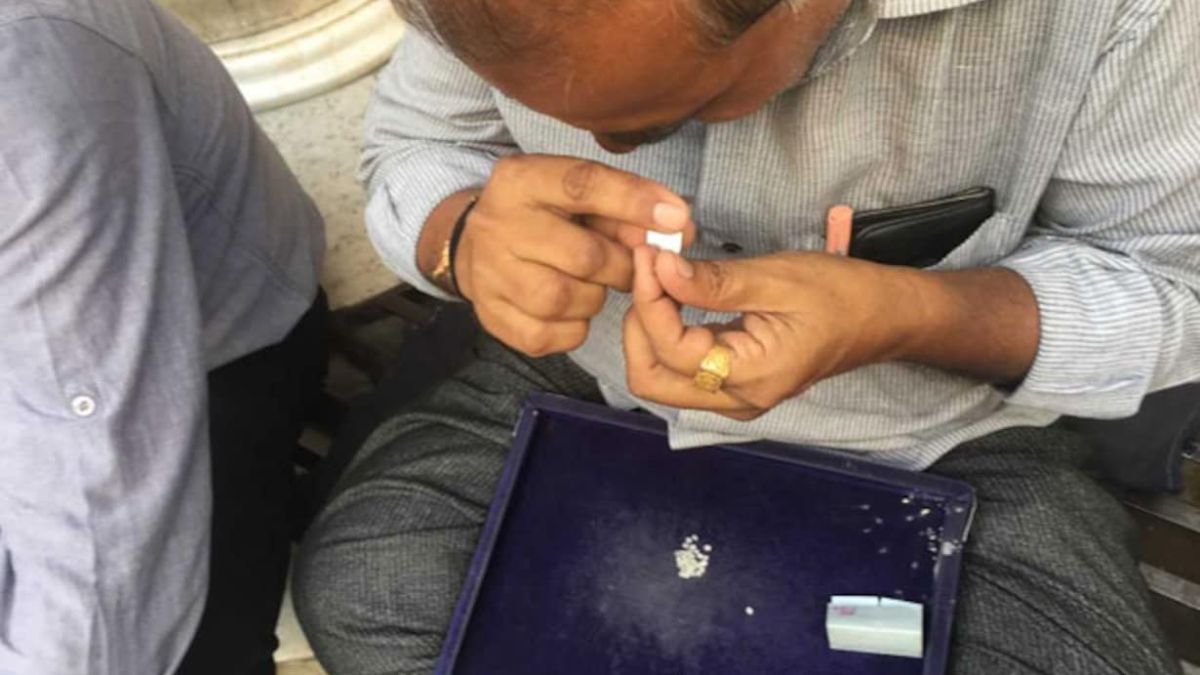De Beers Ready Amid G7 Diamond Import requirements
The global diamond industry, particularly the cutting and polishing hubs in Surat and the trading centers in Mumbai, is on high alert following the G7's decision to expand import restrictions on Russian diamonds

Advertisement
Surat : As the diamond industry grapples with the recent expansion of G7 restrictions on Russian diamonds, major players like De Beers Group are stepping up to meet the challenges head-on. With the new restrictions, which came into effect on September 1, extending to diamonds of 0.5 carats and above, the industry faces significant adjustments. However, De Beers, leveraging its robust traceability systems and best practice standards, assures stakeholders of its readiness to comply and support the industry through this transition.
The global diamond industry, particularly the cutting and polishing hubs in Surat and the trading centers in Mumbai, is on high alert following the G7’s decision to expand import restrictions on Russian diamonds. The new rules, effective from September 1, now encompass diamonds as small as 0.5 carats, tightening the noose on the trade of diamonds originating from Russia. The move is part of a broader effort by the G7 to reduce dependency on Russian resources amid ongoing geopolitical tensions.
In response to these developments, De Beers Group, a leading player in the diamond industry, has expressed its full preparedness to meet the new requirements. The company’s CEO, Al Cook, stated, “De Beers fully supports the work being carried out by the G7 to prohibit the trade in Russian diamonds, and we are committed to working with the G7, the diamond industry, and our partner governments to ensure there is an effective system put in place.”
De Beers has long been at the forefront of ensuring diamond provenance through its proprietary Best Practice Principles and Pipeline Integrity standards. These programs provide rigorous assurance on the origin of its diamonds, a feature that has become increasingly important as the industry navigates the expanded G7 restrictions. With the reduction in the size threshold for restricted diamonds from 1 carat to 0.5 carats, De Beers’ rough diamond customers can continue to offer proof of diamond provenance, thereby maintaining compliance with the new regulations.
De Beers has also been proactive in adopting advanced technology to enhance diamond traceability. The company’s Tracr blockchain platform, which has been rapidly expanding, now boasts the registration of 2.6 million rough diamonds and 370,000 polished diamonds. This cutting-edge platform is designed to track diamonds through the supply chain, ensuring that they meet the stringent requirements set forth by international regulations.
The diamond industry’s response to the G7’s expanded restrictions has been mixed, with concerns about the potential impact on business operations in key markets like Surat and Mumbai. However, leaders within the industry, including De Beers, remain optimistic about the long-term benefits of enhanced traceability and the eventual stabilization of the market.
One industry leader, a prominent figure in Surat’s diamond sector, remarked, “While the expansion of G7 restrictions presents significant challenges, it also pushes us to innovate and strengthen our practices. With partners like De Beers leading the way in traceability, we are confident that the industry can adapt and continue to thrive.”
Another industry insider from Mumbai added, “The diamond industry has always been resilient. The steps being taken by De Beers and the G7 are necessary to ensure the future of our trade. We must embrace these changes and work together to maintain the integrity of our supply chains.”
Advertisement

